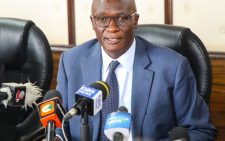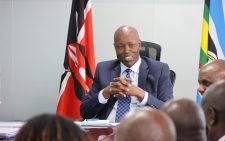Lessons for Kenya from Argentina’s economic reforms

The news that the Kenyan government is seeking an extra Ksh5 billion for salaries, travel, and entertainment has stirred up controversy, especially in light of the ongoing austerity measures.
Ironically, this request follows the Ministry of Health’s plea to the United States to reconsider its stance on USAID, given its Sh5 billion loss in aid funding.
The supplementary budget presented in Parliament seeks an additional Sh85.8 billion for the financial year ending in June.
The funding is earmarked for the State House, the Deputy President’s office, and the Office of the Prime Cabinet Secretary (OPCS).
The budget aims to cover various unspecified expenses, including domestic travel, salaries, allowances, entertainment, and vehicle maintenance.
Although the OPCS had requested an additional Sh2.6 billion starting in July, the Ministry of Finance rejected the request.
Is Kenya capable of managing these increasing budget demands?
To ease the burden on citizens, the government could take inspiration from President Javier Milei’s radical economic reforms in Argentina.
Milei took the rather radical route of trimming government excesses.
His bold economic overhaul has drawn global attention, and Kenya could benefit from his strategies.
For years, Argentina was a land of unrealised potential, a thriving economic force, but excessive government, corruption, and ineffective policies later hindered it.
When Milei took office, inflation was soaring at over 230 per cent annually, more than half the population lived in poverty, and the national debt seemed insurmountable.
Argentina was an economic powder keg on the brink of collapse.
What sets Milei apart is his proactive choice to tackle these issues head-on.
He reduced real public spending by 30 per cent, eliminated half of the government ministries, and enforced strict budget controls.
This approach could offer valuable lessons to Kenya, which also grapples with a substantial public-sector wage bill and significant debt.
In the wake of the US cutting funds, streamlining government and cutting unnecessary expenditures could create fiscal space for development projects without excessive borrowing.
President Milei declared war on bureaucracy, cutting regulations that stifled economic activity.
One standout example was the rental market. By abolishing price controls, housing supply in Buenos Aires surged by 200 per cent, and rents fell by 40 per cent.
Kenya’s housing and land sectors face many bureaucratic hurdles that slow development, increase costs, and create opportunities for corruption. Developers must get approvals from multiple agencies.
Simplifying bureaucratic processes and reducing unnecessary red tape could make property ownership and business operations more affordable.
Kenya can draw inspiration from Milei’s boldness, but it must tailor these lessons to its unique context.
Unlike Argentina, Kenya has a more diversified economy and does not face the challenge of hyperinflation.
To avoid harsh austerity measures, Kenya should prioritise streamlining government, preserving essential services, fostering a business-friendly environment by reducing bureaucracy, and providing social safety nets for vulnerable populations.
Milei has made a significant shift in the country’s foreign policy, aligning it more closely with the US and Israel.
This marks a departure from Argentina’s previous partnerships with countries like China and Brazil.
Similarly, Kenya’s foreign policy needs to be decisive. Recent choices in Kenya’s foreign relations have led to tensions, particularly with Sudan.
Hosting meetings with Sudan’s Rapid Support Forces (RSF) in Nairobi has resulted in accusations from Khartoum that Kenya had violated Sudanese sovereignty and displayed hostility.
These actions have raised questions about Kenya’s neutrality and whether personal relationships are at play.
To prevent perceptions of bias or unpredictability, it will benefit Kenya if we articulate our international alliances and positions.
—The writer is an Innovations Evangelist and a PhD Candidate















